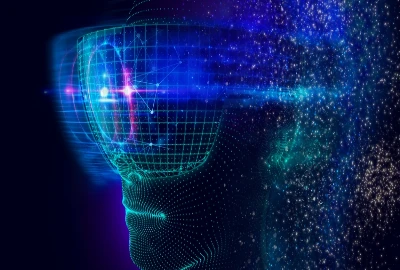Fandom Culture: How Online Communities Are Shaping Entertainment Franchises

Entertainment has never been a one-way street. In the past, fans consumed content created by studios, but today, fandom culture is rewriting the rules. Online communities have given fans a louder voice, enabling them to influence storylines, demand spinoffs, and even revive canceled shows.
Why This Matters
The relationship between creators and fans has evolved into a collaborative ecosystem. Instead of being passive consumers, fans are now active participants shaping franchises.
Examples of Fan Impact
Movements like the campaign to release the “Snyder Cut” of Justice League or the revival of Brooklyn Nine-Nine show that fan-driven campaigns can sway industry decisions. Fandom is no longer just about enthusiasm—it’s a driving force in entertainment economics.
The Evolution of Fandom: From Conventions to Online Platforms

Fandom culture has deep roots, but the digital age has accelerated its growth and reach.
Traditional Fandom Spaces
Before the internet, fan culture thrived in conventions, zines, and small fan clubs. These communities were tight-knit but limited by geography and access.
The Digital Revolution
Platforms like Reddit, Tumblr, TikTok, and Discord have democratized fandom spaces. Fans can instantly share theories, memes, and fan fiction, reaching global audiences within hours.
The Rise of Social Media Activism
Hashtags like #SaveTheOA or #ReleaseTheSnyderCut demonstrate how fans use digital tools to rally support, creating collective movements that put pressure on studios.
Fan-Generated Content: Expanding the Universe Beyond Canon

One of the most powerful aspects of fandom culture is how fans create their own stories, art, and theories.
Fan Fiction and Alternative Narratives
Websites like Archive of Our Own (AO3) have millions of fan-written works, extending franchises into new directions. This fan labor often inspires new conversations and interpretations of official content.
Fan Art and Memes
Visual creativity also plays a role. Fan art, GIFs, and memes often go viral, keeping franchises relevant between official releases. These creative contributions can also inspire merchandising ideas or even new character arcs.
The Fine Line Between Canon and Fanon
Sometimes, fan ideas become so popular they influence official content. For example, Supernatural embraced fan theories and even included nods to fandom within the show itself.
Online Communities as Marketing Powerhouses

Entertainment franchises now rely heavily on fandom engagement for promotion and longevity.
Free Word-of-Mouth Advertising
Fans are natural marketers. Sharing trailers, clips, or reactions on TikTok and Twitter boosts visibility without studios spending millions on advertising.
User-Generated Buzz
Platforms like YouTube and Twitch host reaction videos, reviews, and breakdowns that amplify hype around shows, movies, and games. A single viral video can spark renewed interest in a franchise.
Studios Leveraging Fan Communities
Companies are recognizing this power. Disney and Marvel often drop teasers during high-fan engagement times, while Netflix relies on fan-driven social chatter to extend the life of its originals.
The Double-Edged Sword: When Fandom Turns Toxic

Not all aspects of fandom culture are positive. Online spaces can amplify negativity as much as enthusiasm.
Fan Entitlement and Demands
Some fans feel overly entitled to dictate creative choices, leading to backlash when storylines don’t meet expectations (Star Wars: The Last Jedi faced this issue).
Gatekeeping and Exclusion
Toxic fandoms sometimes discourage newcomers by gatekeeping knowledge or harassing creators and fellow fans. This undermines the inclusive potential of fan communities.
The Industry’s Challenge
Studios must navigate this carefully—listening to constructive fan feedback while resisting harmful pressure that undermines artistic integrity.
Case Studies: Fandom Movements That Shaped Franchises

To see the influence of fandom culture in action, let’s look at real-world examples.
The Snyder Cut Movement
Fans campaigned relentlessly on social media to demand the release of Zack Snyder’s version of Justice League. In 2021, Warner Bros. finally released it, proving fan persistence can alter studio decisions.
BTS and the Power of ARMY
The K-pop fandom ARMY has turned BTS into a global phenomenon, demonstrating how organized fanbases can drive streaming numbers, ticket sales, and social impact campaigns.
The Revival of Canceled Shows
Series like Brooklyn Nine-Nine and Lucifer found new life after passionate online campaigns. This shows how fan activism can directly save franchises from extinction.
The Future of Fandom Culture in Entertainment

The role of fandom will only grow as technology advances and online communities expand.
The Metaverse and Immersive Fandom Spaces
Virtual reality and metaverse platforms may soon host fan conventions, watch parties, and even co-created content, taking fandom into immersive dimensions.
AI and Personalized Fandom Content
AI-driven platforms can analyze fan preferences, generating tailored spin-offs, interactive narratives, and custom experiences that align with fan desires.
Fandom as a Business Model
Studios are increasingly designing franchises with fan engagement in mind from the start, ensuring long-term sustainability by cultivating communities rather than just producing content.




